Filter City Workplaces: Shape-Shifter
How might (office) buildings be made more flexible? Is the deep plan CBD office tower obsolete as companies switch to work-from-home with greater productivity and lower costs?
COVID-19 has accelerated the shift towards remote working that was already happening before the pandemic struck. The mobility of work has been facilitated significantly by technology; work is now an activity that can happen any time, in any location.
With flatter organizational structures and smaller work teams to promote collaboration, the workplace has become more flexible. Further, the CBD has been decentralized into Regional Centres, bringing the workplace closer to homes.
With more remote working, the office building is becoming less important. Office hoteling is a logical progression, and a more economical work arrangement for the future. The pay-per-use membership model provides workers with a variety of workplaces at different locations.
Instead of thinking of ‘finished architecture’, the concept of granulation is pushed further, distilling office buildings to its basic components that make it functional in the first place. Designed as a flexible system, there is no individual building, instead a single superordinate structure. Urban space is too valuable to be static. With the appropriate technology, space can be reconfigured and transformed in an effortless way.
To do this, the project has modular proportions which are re-programmable and reconfigurable into special meeting spaces, staycations and even workspaces during quarantine for out-of-town visitors. A new space which sustains business continuity in specific workspace and accommodation types over short and long periods of unpredictability and uncertainty in quantum and in types of demand.
Should buildings be defined by a single typology? Should spaces be single functioned? The thesis explores the viability of a three-in-one solution instead of separate notions of office, visitor accommodation and quarantine, offering one interpretation of granularity in urban programs and usage. This optimises land use and occupancies as separate large land plots are no longer dedicated to single functions that may be inefficient and underutilised. This flexibility is especially attractive for operators and property developers.
“Urban space is too valuable to be static. With the appropriate technology, space can be configured and transformed in an effortless way.”
Key words: Pandemic, Workplace, Flexible Architecture, Robot Integrated Building Design
This project is part of a larger Filter City Masterplan by Studio Joseph Lim
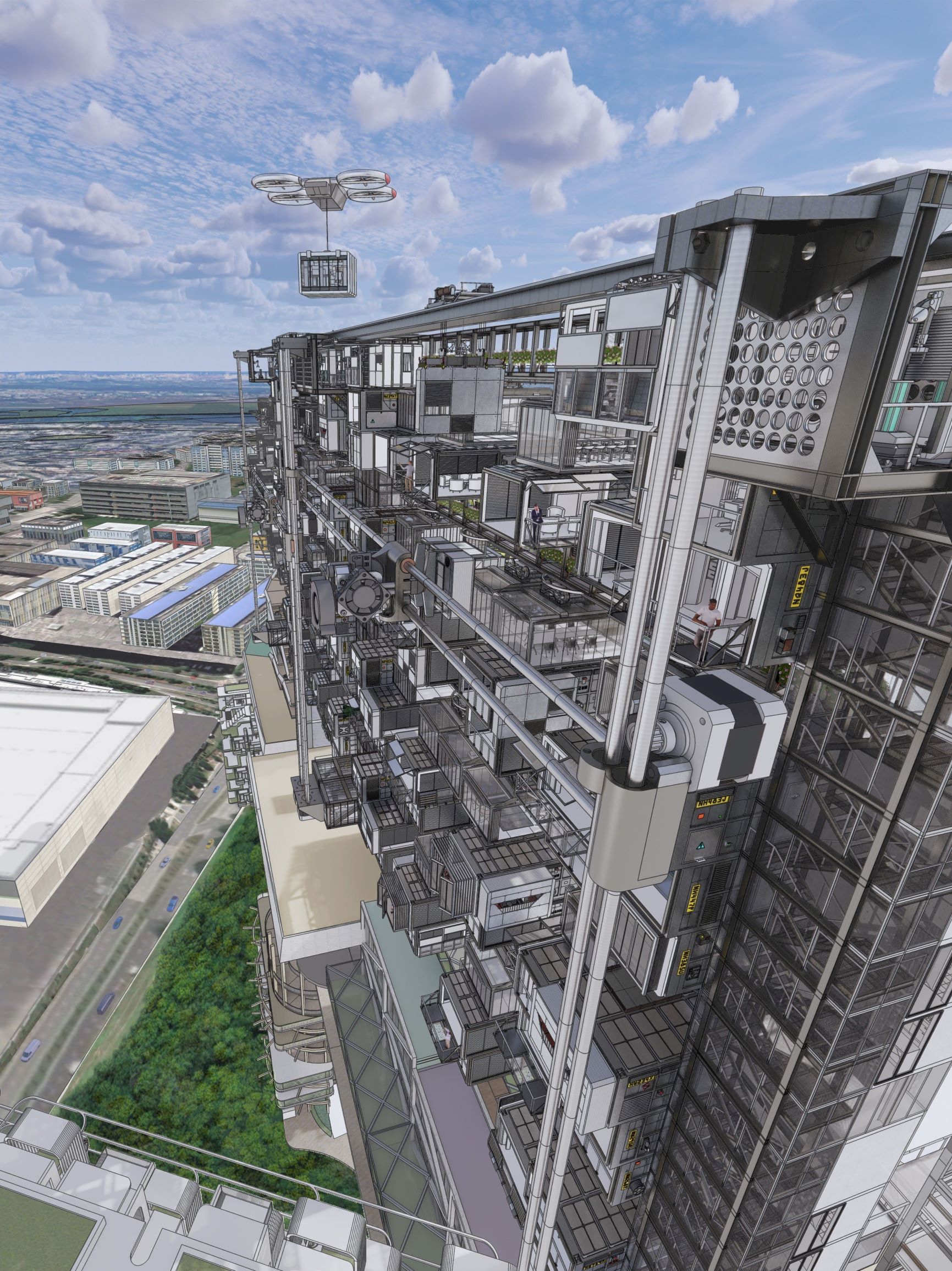
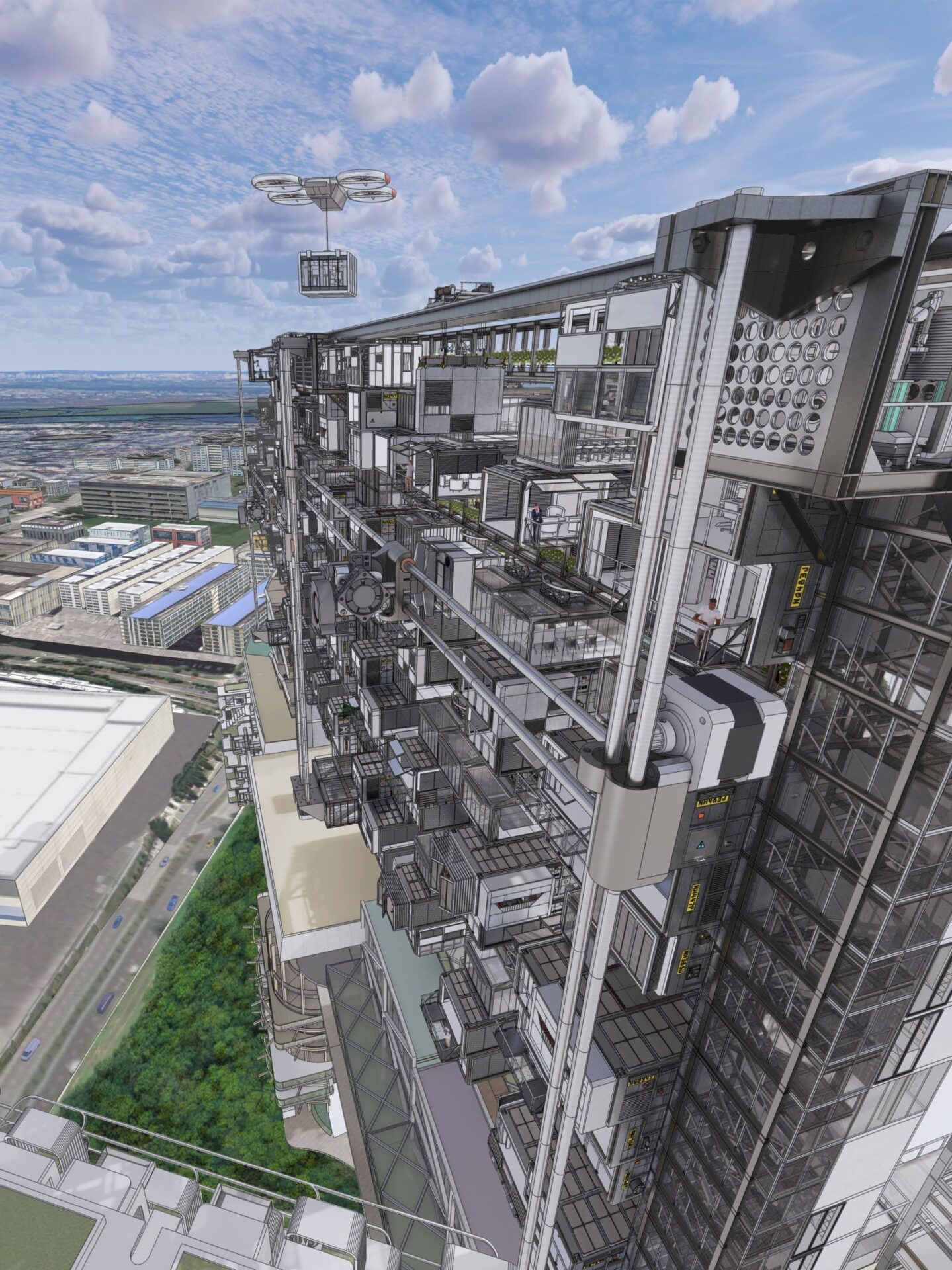
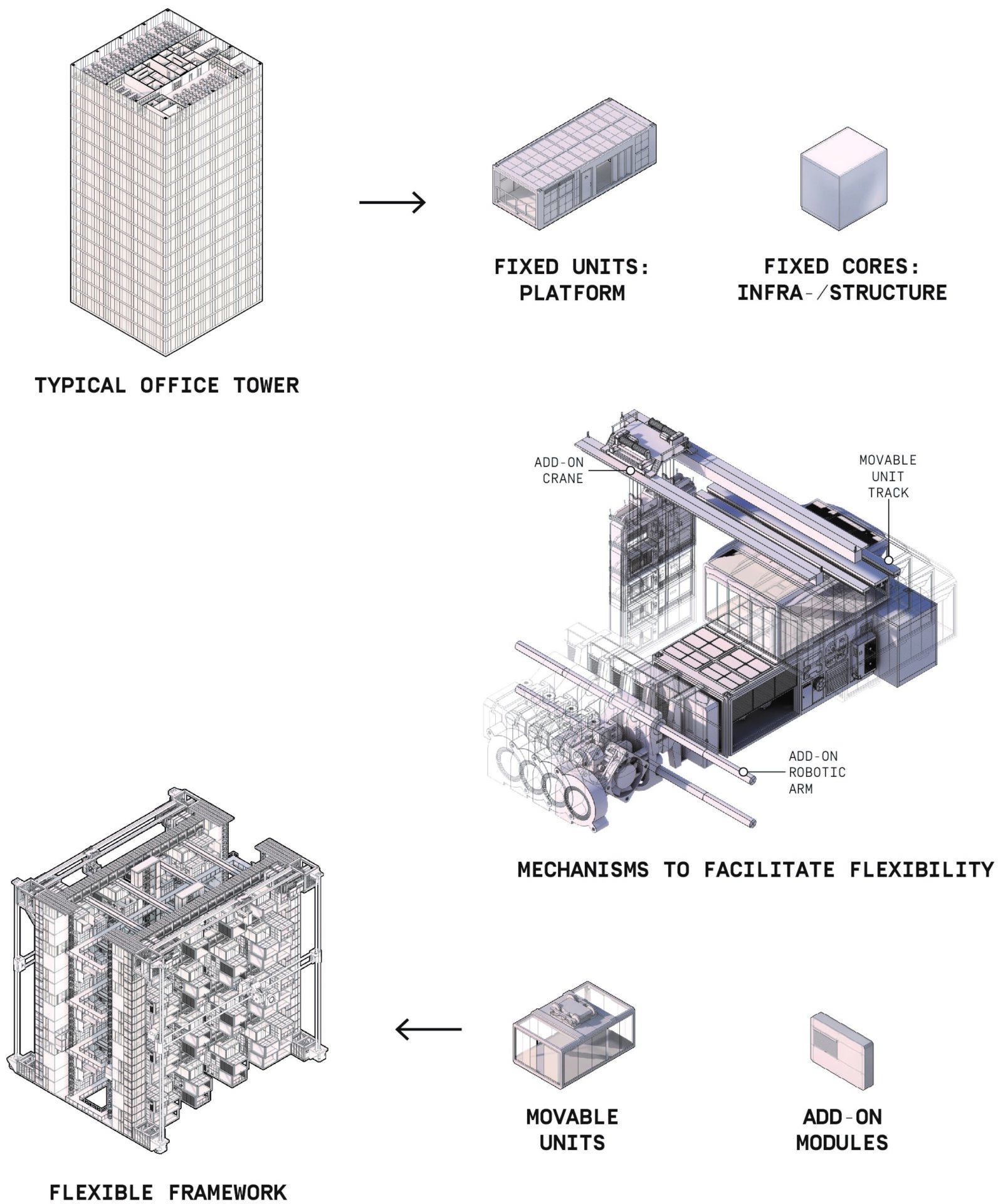
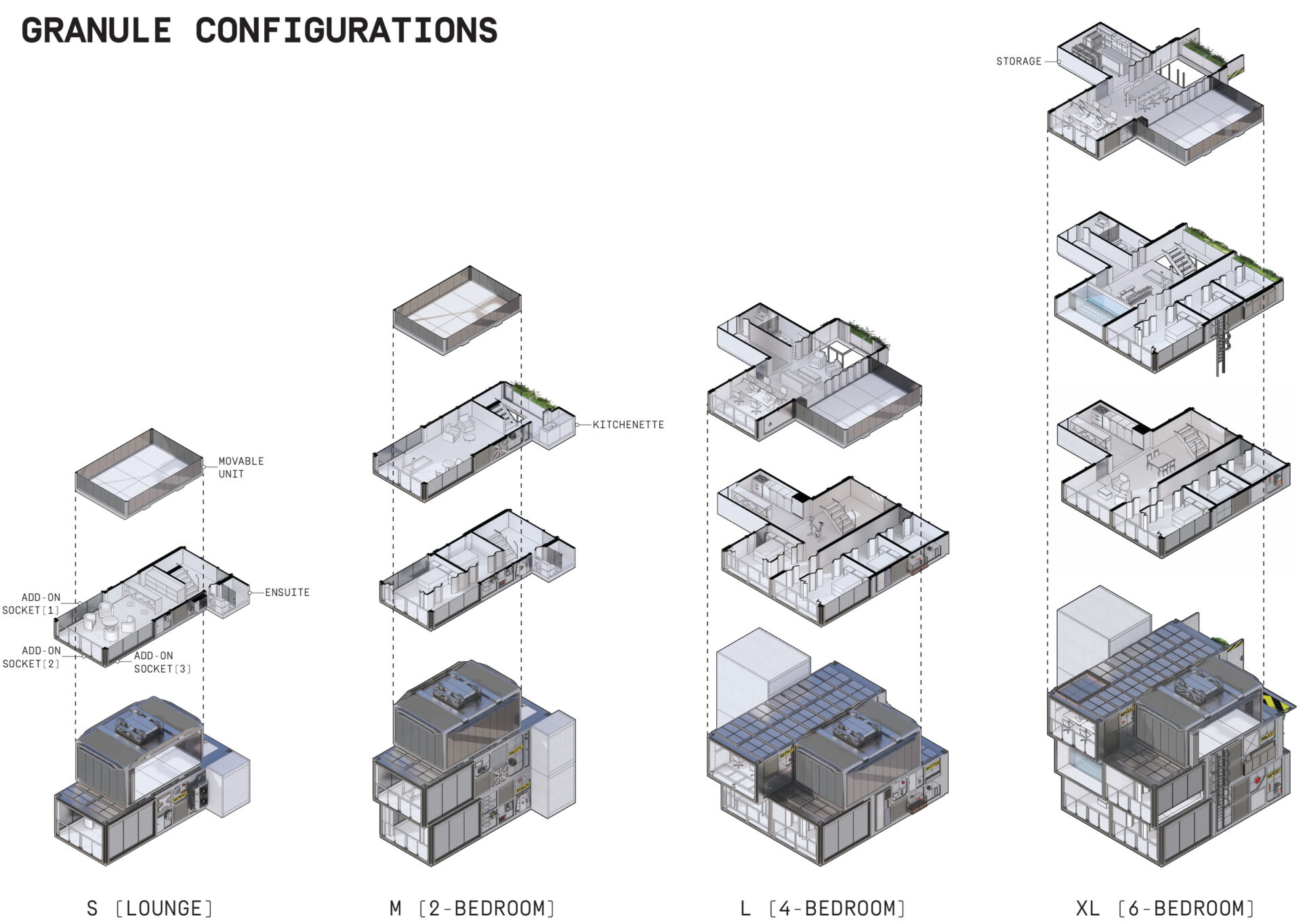
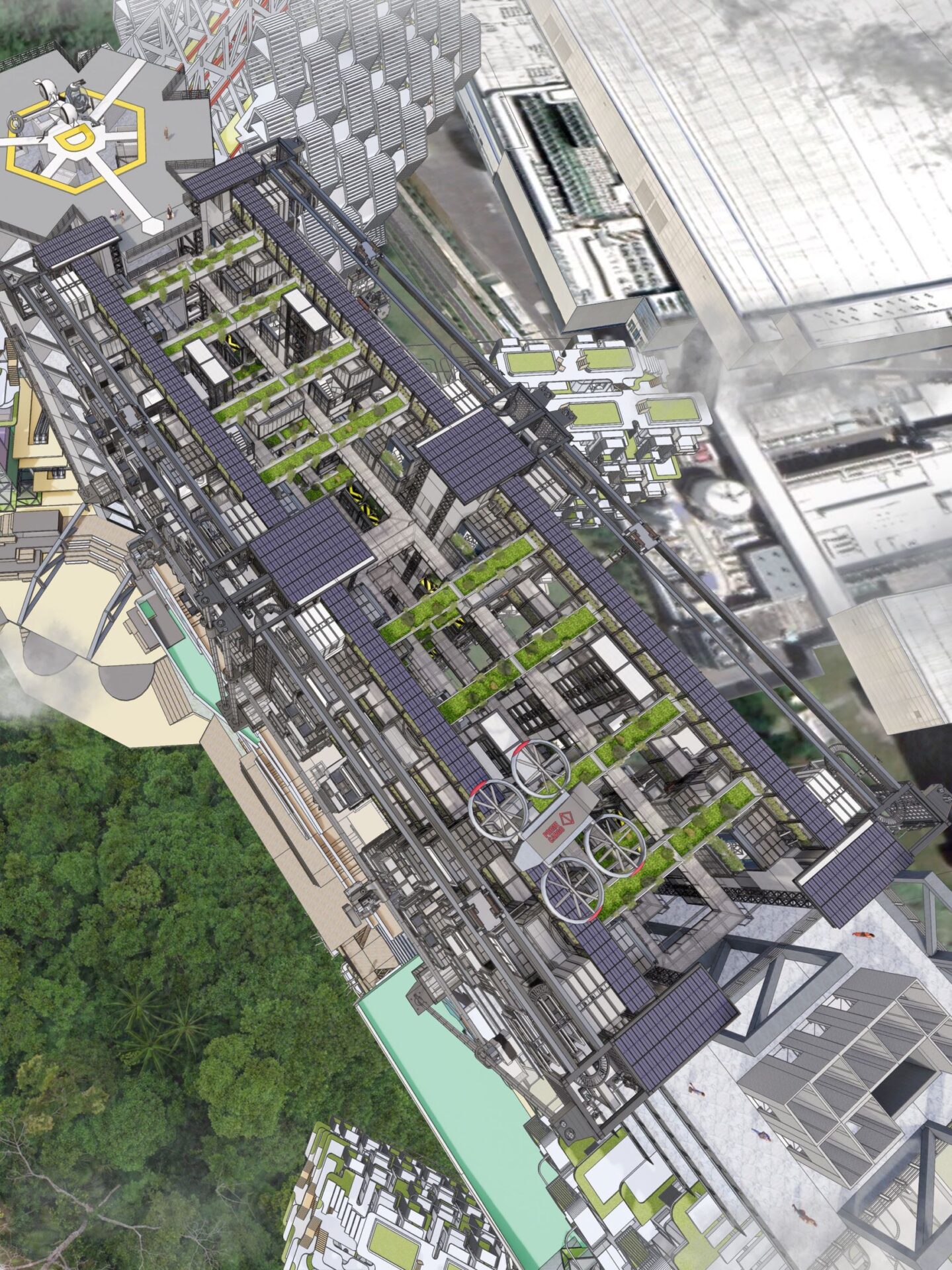
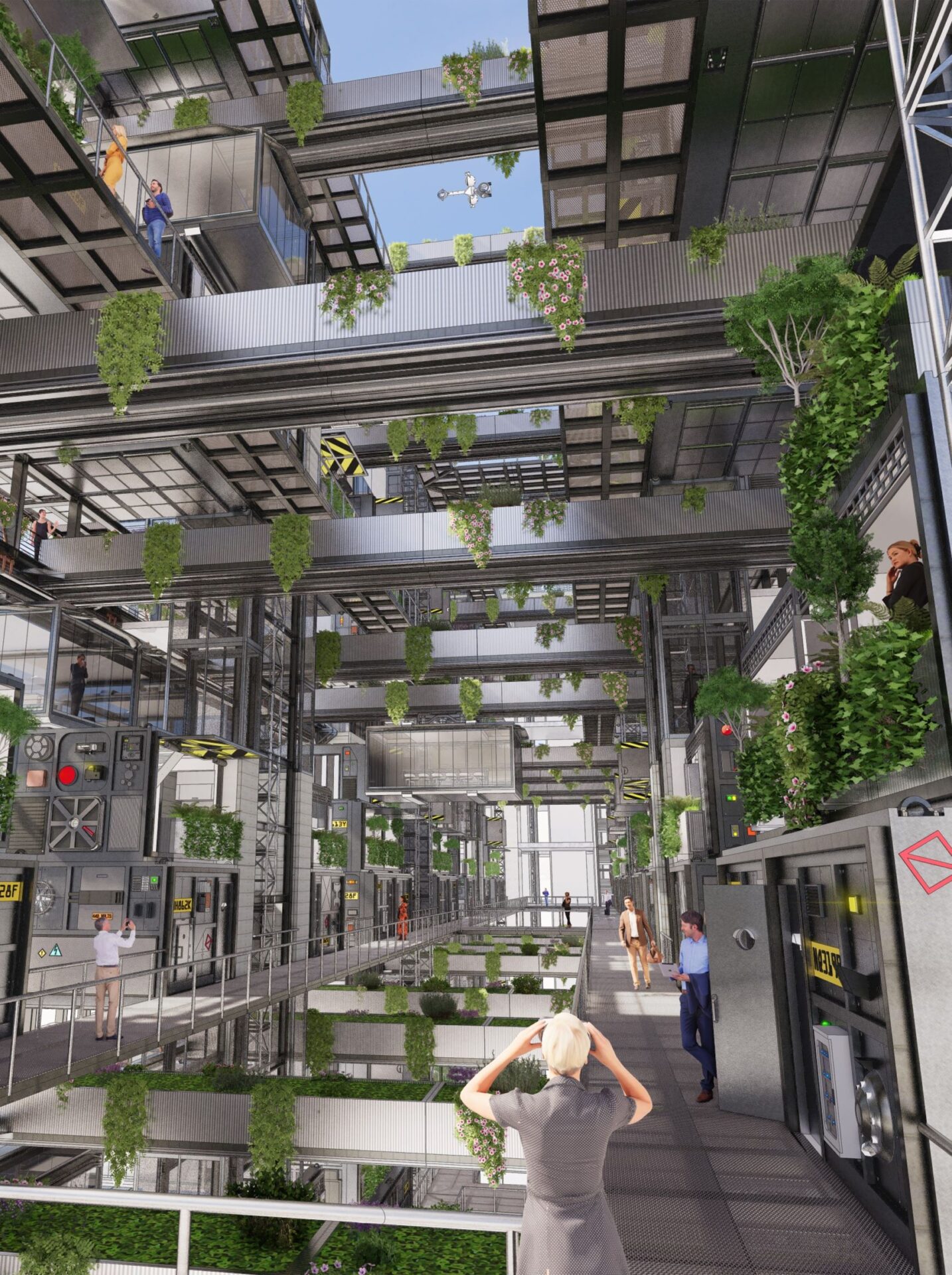
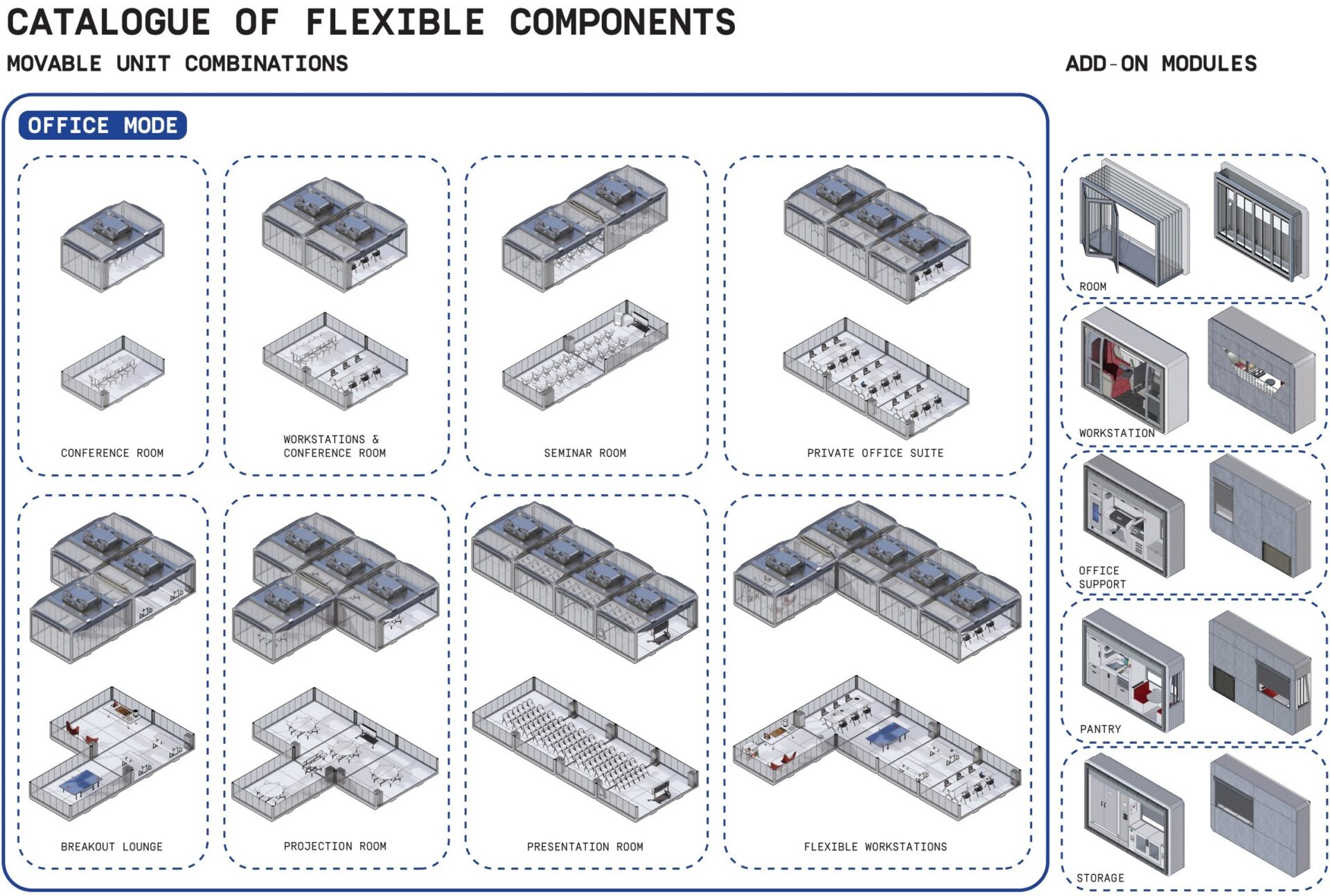
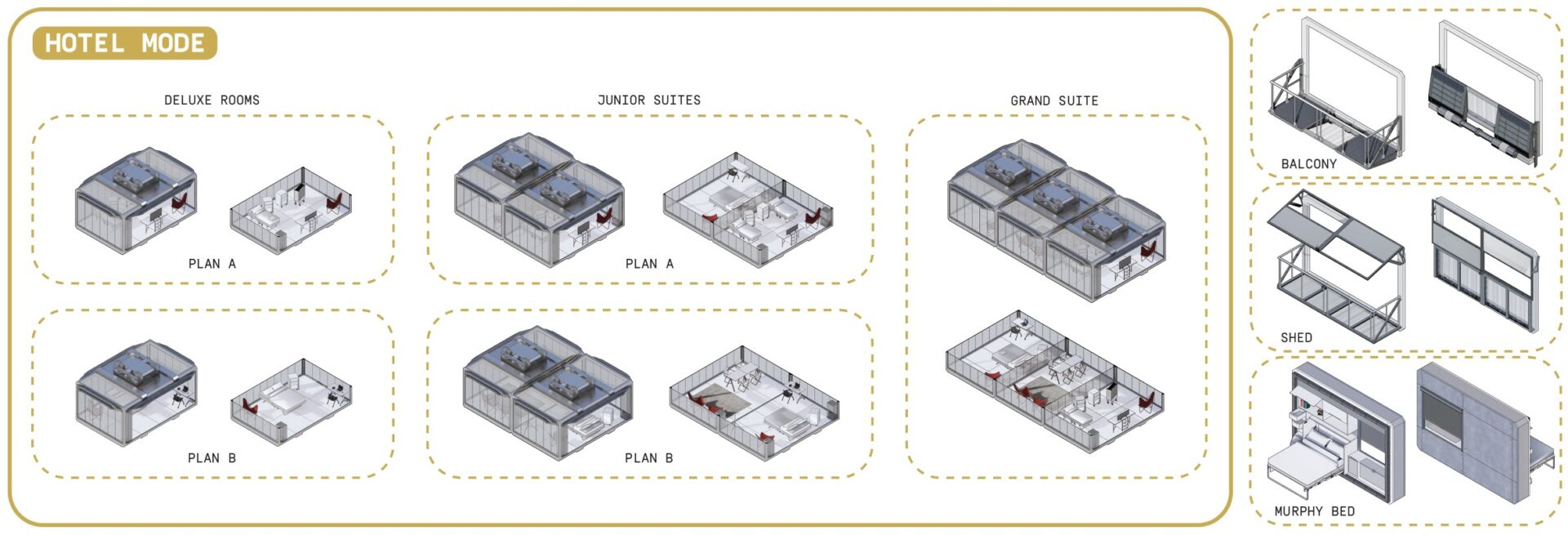
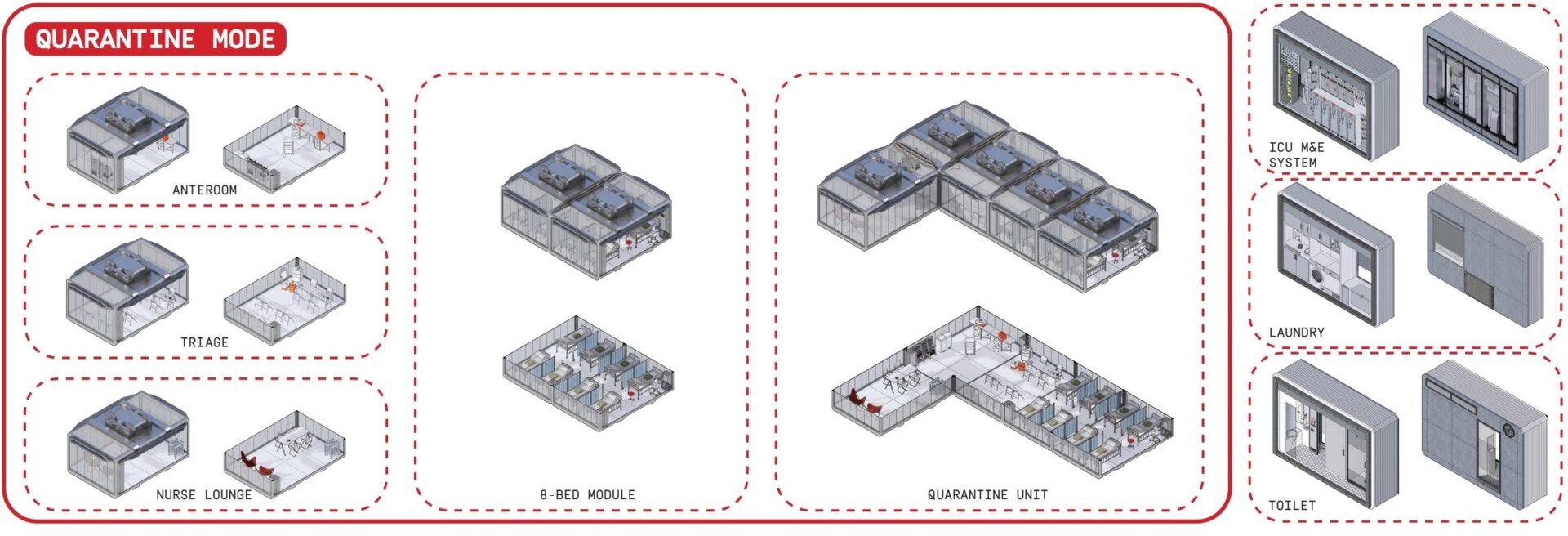



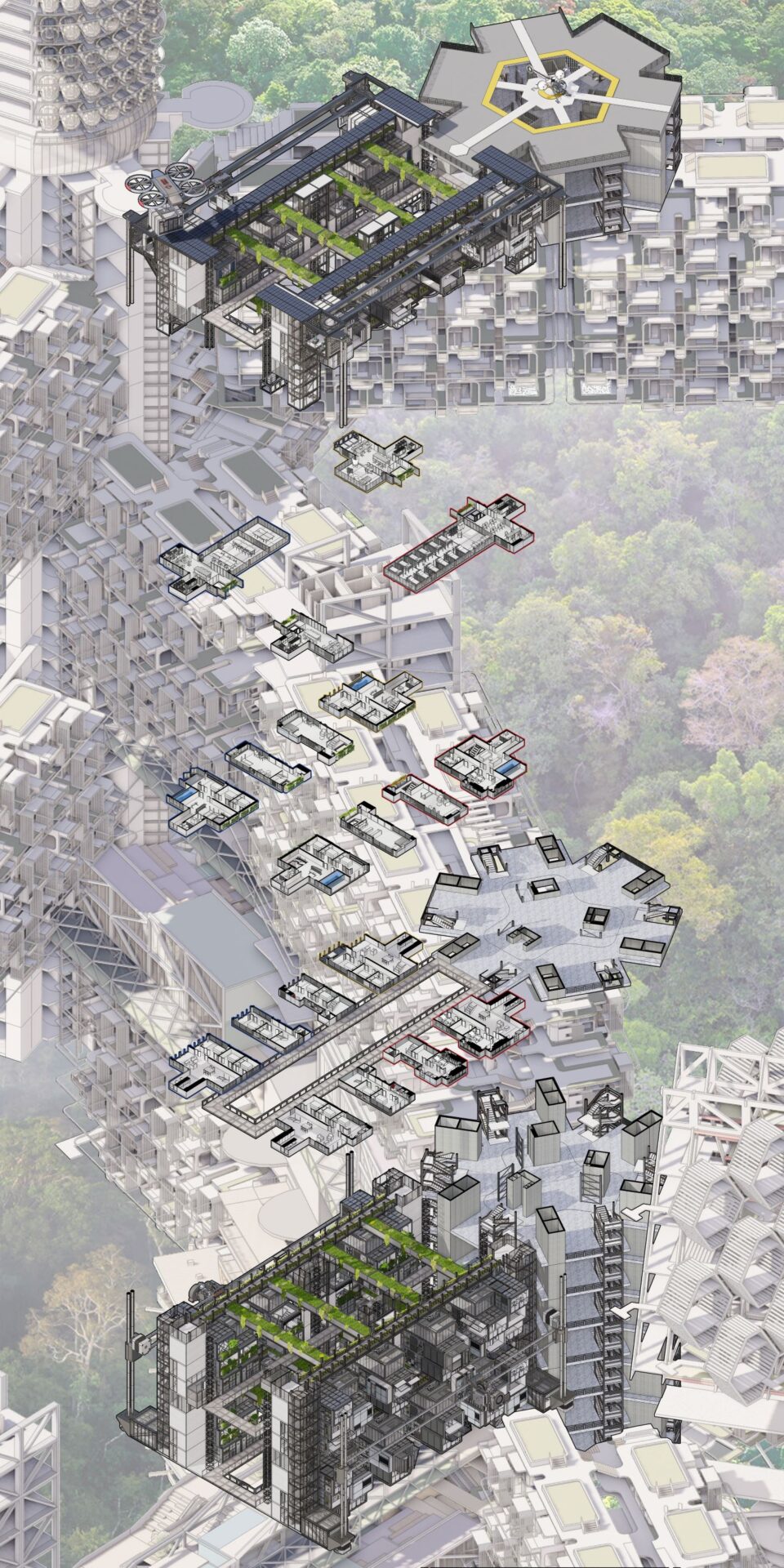
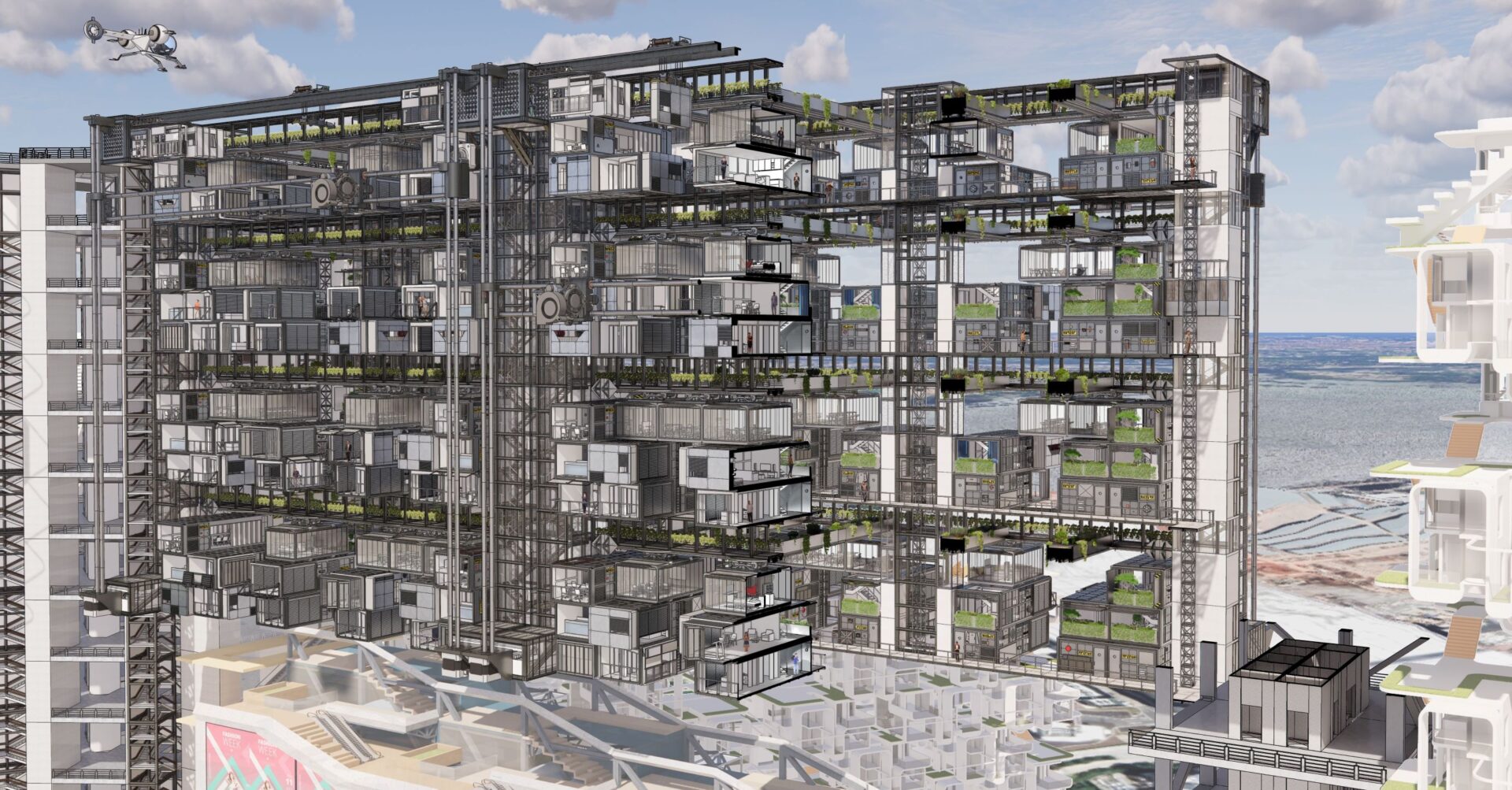
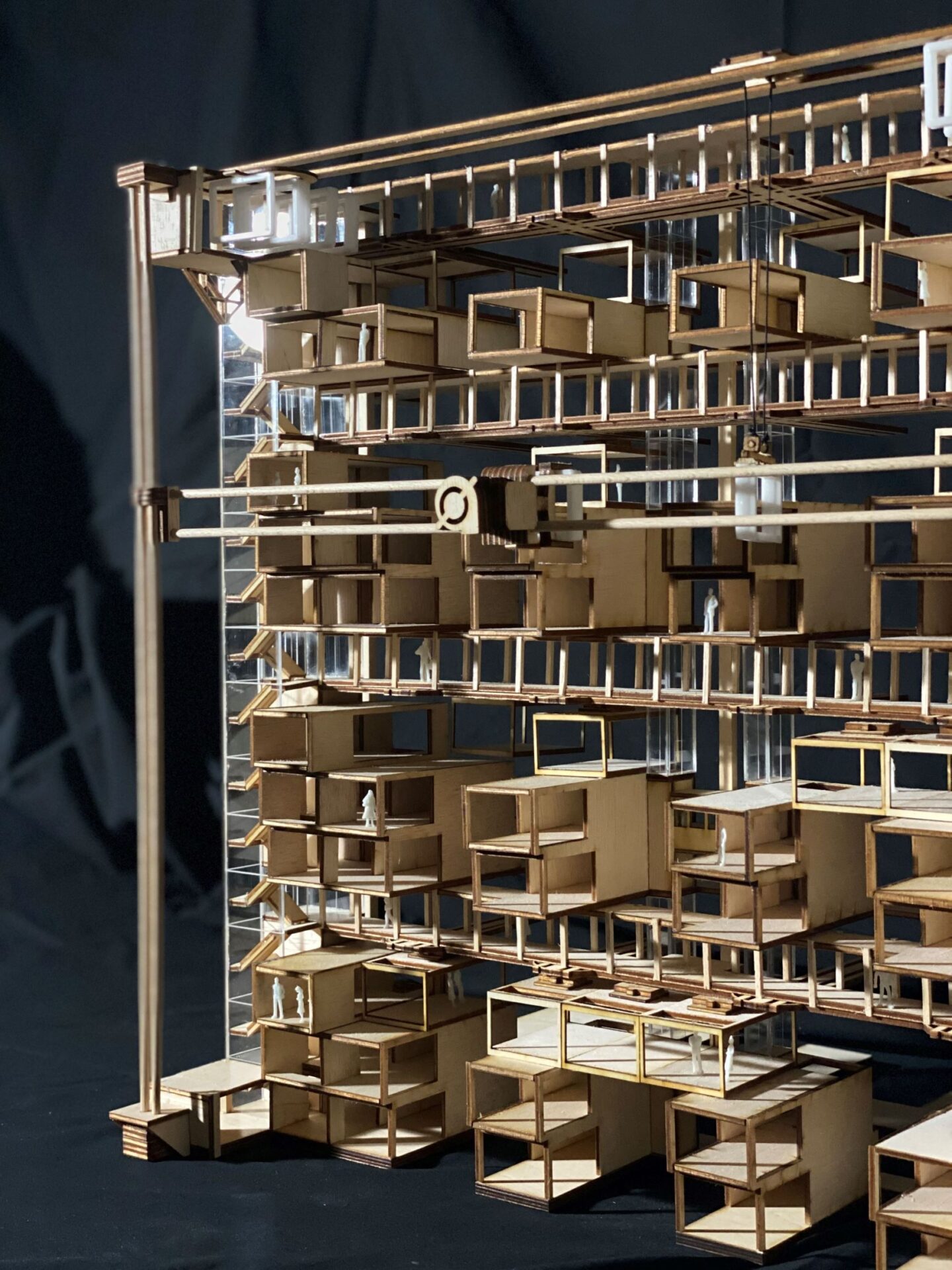
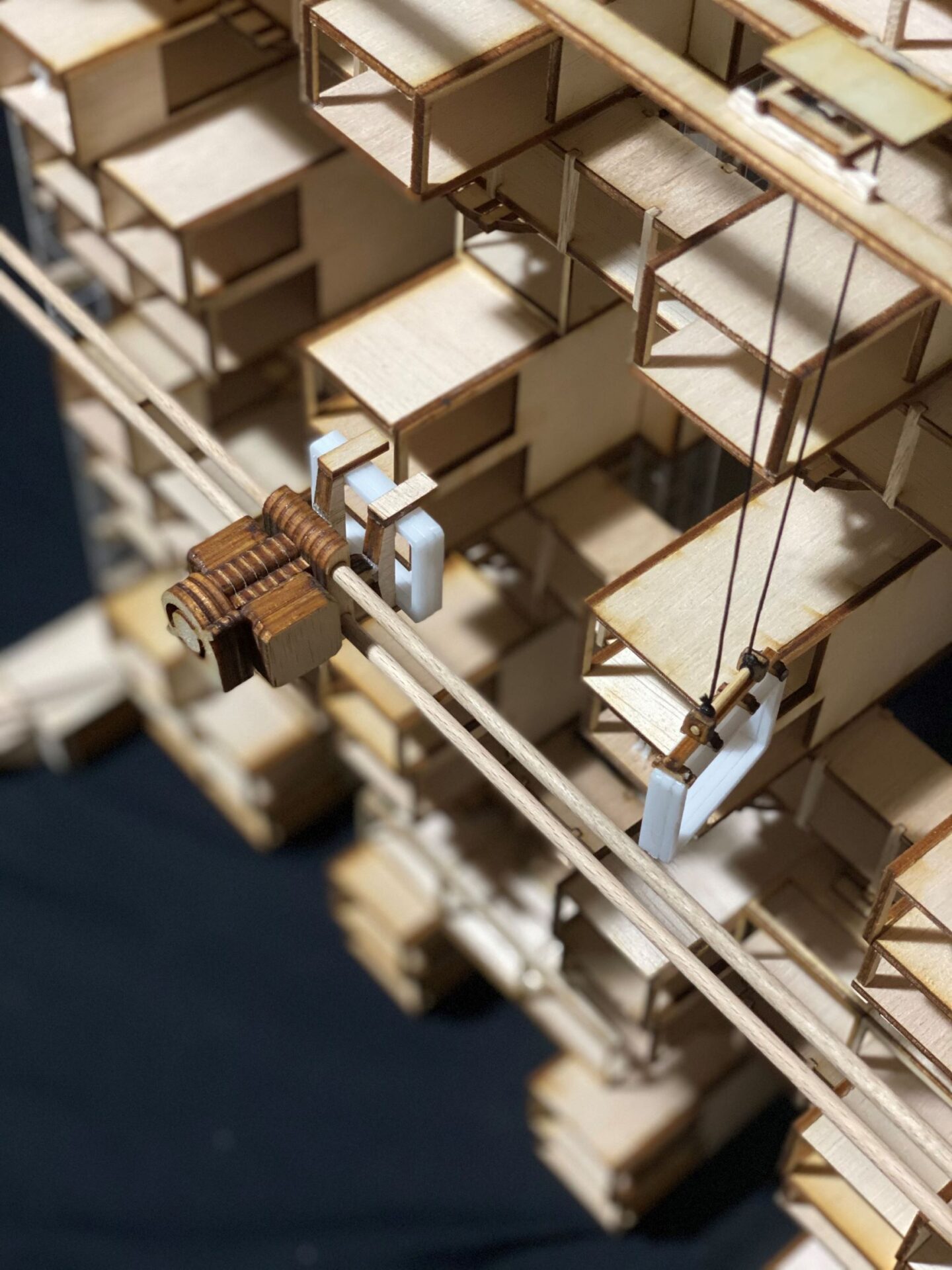
Supervisor's comments:
Is the deep plan CBD office tower obsolete when companies are not renewing expensive leases and switching to work-from-home modes with greater productivity and lower costs? What happens when individuals or groups are risk-notified and want to continue working until such time of infection confirmation? Justin researches into a new space which sustains business continuity in specific workspace and accommodation types over both short and long term periods of unpredictability and uncertainty in quantum and in types of demand. To do this, the project has modular proportions which are re- programmable and reconfigurable into special meeting spaces, staycations and even workspaces during quarantine for out-of-town visitors. The thesis questions the viability of a three-in-one solution instead of separate notions of quarantine, office and visitor accommodation and offers one interpretation of granularity in urban program and usage
- Assoc. Prof. Joseph Lim (Dr.)